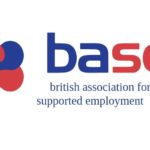Updated June 2024
Create a successful induction programme for new staff members.
When you bring a new member into your team, the first few days are critical. This is particularly true when you are employing young people, some of whom might be entering the world of work for the first time.
The right staff induction programme can help a young person feel welcomed and valued in the workplace and can help them get started in their new role on the best possible footing. This sets them up for a positive experience and long-term success. Conversely, an unorganised induction process (or no induction at all) can leave them feeling demotivated, undervalued, and unsure of their place in your company. This can leave a bad impression which may be hard to shake.
Create a comprehensive staff induction checklist, using our guide below. Start your young employees’ journey with you in the most positive way.
What Do You Want Your Induction to Achieve?
To plan a successful induction, you need to identify what you want it to achieve. Make a list of everything your new employee will need to have learned or completed by the end of their first week. You can then refer to this as you plan the rest of your staff induction process to ensure that everything has been covered.
During an induction, your new employee should learn everything they need to know about the norms, customs, and expectations of your workplace. They should also learn the basics of their job role, complete any mandatory training, meet relevant people, and receive all equipment and logins they will need.
Make an Induction Programme Checklist
The programme you use to make your induction checklist doesn’t matter – the point is that it should be clear and easy for you to tick off and share with others. If your company already uses a CRM, consider creating a new template for inductions that can be reused time and time again. Doing this will mean each team member you hire will have the same induction experience. If you don’t have access to a sufficient CRM, creating a shareable document on Google Sheets will be sufficient.
The checklist will be for you, giving you peace of mind that nothing has been missed in the planning. Consider the following:
- Do you have all equipment clean and ready to use?
- Send a welcome email one week prior
- Send recurring meeting invites
- Provide logins and access
- provide office keys/cards/pin codes
- Assign a buddy/mentor
- Conduct health and safety briefings
- Complete necessary admin (p45, NI Number, bank details for pay etc)
Employee Training Timetable
A second checklist or timetable will need to be made for the new employee giving them an overview of all meetings and tasks they will be doing each day of their induction. Average induction timetables are between one and two weeks long, but yours could be longer, depending on the industry and job role. Aim to split up your induction timetable by day, and then break this down further into AM and PM. Provide gaps in the timetable to allow for ad-hoc ‘get to know you’ conversations and common teething issues such as equipment set up and access.
What Training Will a New Employee Need?
Whether you have recruited for this role in the past, or it is a new role for your business, it’s important to understand that no two recruits are the same. Training may need to be delivered in different ways, depending on the skills and abilities of the person you hire. Putting together a standard framework of training outcomes will help keep your induction training on track, but it’s important to leave time for additional discussions and input from your new staff member on what would be beneficial for them to get up to speed.
It is likely there will be some mandatory training that they need to complete. This may include things like health and safety, equality and diversity, or data protection training. There may also be role-specific training they need to complete, such as learning how to use a specific computer programme or piece of equipment.
All of these training sessions will need to be scheduled into the induction plan. If there is self-directed or online training to complete, don’t forget to build in time for this as well.
Internal Meetings
New employees will meet a lot of people and have to try to remember a lot of names during their first week. Depending on the size of your departments, group sessions can be most efficient and mean that the same or similar information isn’t being delivered multiple times, taking time out of each staff member’s day.
If your departments are large, limit meetings to those your new staff member will work closely with. In time they will get the lay of the land, but for their induction, it’s unlikely they’ll need to know everyone.
Ensure each existing staff member has an agenda for these initial meetings to help them run smoothly and consistently – Initial meetings will typically be introductions with existing staff explaining who they are, what they do, and how they will work with the new team member, and the new team member offering the same. The time for each meeting will depend on the goals for the session. If it is simply a quick meet and greet, then around 15 minutes will be enough. If the employee will be providing any kind of training to your new starter during the session, then an hour might be more appropriate, but use your best judgment based on the outcome intended.
Assign a Mentor or Buddy
The first week of a new job can be daunting for anyone, and this is particularly true for young people with little or no experience. One great way to make the transition easier is to assign them a mentor or buddy who will be responsible for guiding them through the first week. This is a person they can go to with any questions or concerns, as well as a friendly and reassuring presence while they get acclimated.
If possible, assign a younger member of staff to mentor a new young employee. Having someone of a similar age to talk to can help them feel more settled and integrated more quickly.
Send Them the Plan in Advance
Sending your new recruit a welcome email a week before they join you helps them feel part of the team and eases any first-day nerves. Your email should provide confirmation of where to park, which door to use to access your building, dress code, and confirmation of working hours and lunch breaks. Include details such as where the closest cafe or shop is to get lunch, or whether they have fridge space to bring their own.
You may decide to send your induction timetable with this email, but if you think it will raise questions or cause concerns without context, then provide this in person on their first day.
Check In Regularly
Finally, remember that the only way you can know how things are going for your new employee is to ask them. Therefore, make time to check in regularly during their first week and beyond. Invite them to share any concerns they have, ask any questions, and provide any feedback on their experience that may be useful.
This sets up an environment of openness and trust, which is crucial for ensuring a long-lasting and positive relationship between your company and your new young employee.





